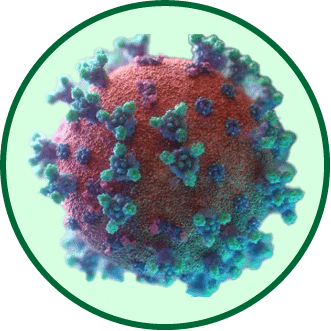Lessons from Surviving Severe Respiratory Illness
Introduction
Severe respiratory illnesses, from pneumonia to COVID-19, can be life-altering experiences. Survivors often emerge from these health crises with new perspectives on life, health, and the importance of community. This article delves into the profound lessons that survivors of severe respiratory illnesses have shared, illuminating the transformative power of such experiences.
- The Preciousness of Health
1.1 Taking Nothing for Granted
- Many survivors recall how they once took their good health for granted. Post-recovery, routine activities like breathing without pain or walking without exhaustion gain newfound appreciation.
1.2 Proactive Health Maintenance
- Survivors often become advocates for proactive health checks, recognizing early detection's value in preventing complications.
- The Importance of Preparedness
2.1 Recognizing Early Signs
- One of the key lessons is the importance of recognizing early symptoms, from persistent coughs to shortness of breath, and seeking timely medical intervention.
2.2 Health Literacy
- Understanding medical terminologies, treatment options, and potential complications empowers patients to make informed decisions about their health.
- The Power of Community and Support
3.1 Emotional and Mental Healing
- Beyond the physical battle, dealing with a severe respiratory illness can be a mental and emotional challenge. The support from loved ones and the larger community becomes a pillar of strength.
3.2 Sharing Experiences
- Support groups and online forums become platforms for survivors to share experiences, provide guidance to others, and find a sense of belonging.
- Navigating the Healthcare System
4.1 Advocacy and Rights
- Survivors learn the significance of advocating for their health rights, asking questions, and ensuring they receive the best care possible.
4.2 Valuing Healthcare Professionals
- The dedication and commitment of doctors, nurses, and other healthcare workers leave an indelible mark on survivors, instilling a deep respect for the profession.
- Re-evaluating Life Priorities
5.1 The Fragility of Life
- Staring at the potential loss of life, many survivors undergo a transformation in their life's priorities, often placing greater emphasis on relationships, experiences, and personal growth.
5.2 Pursuing Passions
- Post-recovery, many find the motivation to pursue long-forgotten passions or embark on new adventures, cherishing the second chance at life.
- Embracing Holistic Well-being
6.1 Mental Health Focus
- Survivors often recognize the interconnectedness of physical and mental health, investing in practices like meditation, counseling, and mindfulness.
6.2 Lifestyle Choices
- Diet, exercise, and avoiding toxins like tobacco gain prominence in a survivor's life as they prioritize holistic well-being.
Conclusion
Surviving a severe respiratory illness can be a pivotal moment in one's life. The lessons imbibed from such an experience transcend the immediate health crisis, influencing various life aspects. These lessons underscore the importance of health, community, resilience, and the intrinsic human ability to find hope even in adversity.
Keywords: severe respiratory illness, survivors, health crises, early detection, health literacy, community support, healthcare advocacy, life priorities, holistic well-being, mental health, lifestyle choices.
(Note: While this article captures general sentiments and lessons from survivors, individual experiences can vary widely based on the specific illness, personal circumstances, and healthcare systems.)
